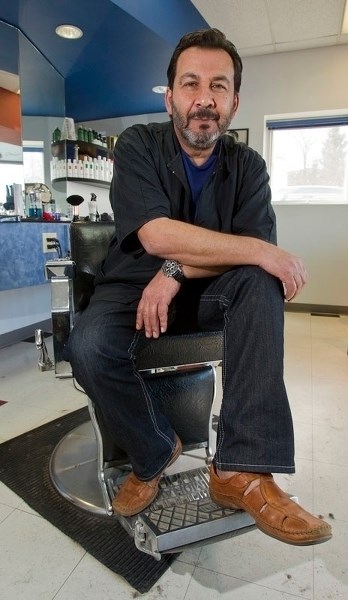The man who shot and killed a guard at the National War Memorial in Ottawa on Wednesday may have called himself a Muslim.
But whatever Michael Zehaf-Bibeau had felt compelled to do or believed in, he was not a representative of Islam or its way of life, say two St. Albert Muslims who agreed to speak to the Gazette following recent acts of terrorism in Canada and abroad.
Both worry how portrayal of Islam in the media and by extremist organizations may affect other Muslims living in Canada.
“This does not represent Islam and I believe this is wrong,” says Jamal Cherkaoui. “I believe (terrorist groups) hijack the religion Islam for their own purposes. I believe it’s about power and money.”
Cherkaoui says he moved to Canada from his native Lebanon in 1982. Like many, he arrived in search of a safe haven, a peaceful and democratic home to raise his children far from civil war and terrorism, he says.
After 30 years, he feels more Canadian than Lebanese, he says – also because Canadians have always welcomed and lived peacefully with people of all colour, ethnicity and religion.
He now worries that could change.
People such as Zehaf-Bibeau and Martin Couture-Rouleau, a follower of ISIS who ran over and killed a Canadian Forces member on Tuesday, may turn public opinion against Muslims, he says.
“Of course I am worried,” he says. “A lot of people don’t understand what’s happening so they probably start looking at everybody who is from the Middle East, who is Muslim, in a different way.”
Every time you point a finger at a religion, you also point a finger at everyone following it, says Hoda Assaf Tarrabain.
The St. Albert resident and Muslim criticizes that the media highlights the fact when a terrorist calls himself a Muslim. When another person commits a similar crime, they are called “insane,” she says.
To her, Michael Zehaf-Bibeau was just that, she says.
But she worries that his belief in Islam may be used to start yet another war against a country or people who have by-and-large nothing in common with extremists, she says.
“They want to find a reason, find an excuse to say, these are the people we are fighting against. This, these are the enemy,” she says. “And it’s very unfair because here’s us, the Muslim community, a majority of us born and raised here.”
A St. Albert resident, Assaf Tarrabain was born in Canada to Lebanese Muslim parents. She has always been devout, she says.
But she also spends many years studying not only Islam but also other religions, and she respects other people’s beliefs and lives in friendship with her Christian neighbours.
She hopes that Canadians who wonder about Islam will take the time to speak to Muslims in their community. Perhaps then they will see that the agenda of extremist groups is bigger than the religion they claim to follow, she says.
“Because any belief, any religion stems from worship and prayer and peace,” she says. “Hatred and violence stems from humans. Acts of terrorism, acts of violence are absolutely no reflection of Islam.”
In speaking with members of the Muslim community, the Gazette met many people who were afraid to voice their opinion. Some feared for the safety of family members abroad, others worried how St. Albertans may receive them in the coming months.
Following the 9/11 attacks on New York, many Muslims were also afraid to practice their religion in public, says Assaf Tarrabain. But hiding in fear is not an answer, she says.
She hopes that Canadians will see that people such as Zehaf-Bibeau have no place in Islam and her community. She also emphasizes that the only way to achieve peace is to work hand-in-hand, nation-to-nation, religion with religion.
Cherkaoui agrees.
“Islam doesn’t teach killing or crime, that’s totally the opposite,” he says. “Peace, love. That’s my religion, be good. You don’t judge people by what they believe but by who they are.”




